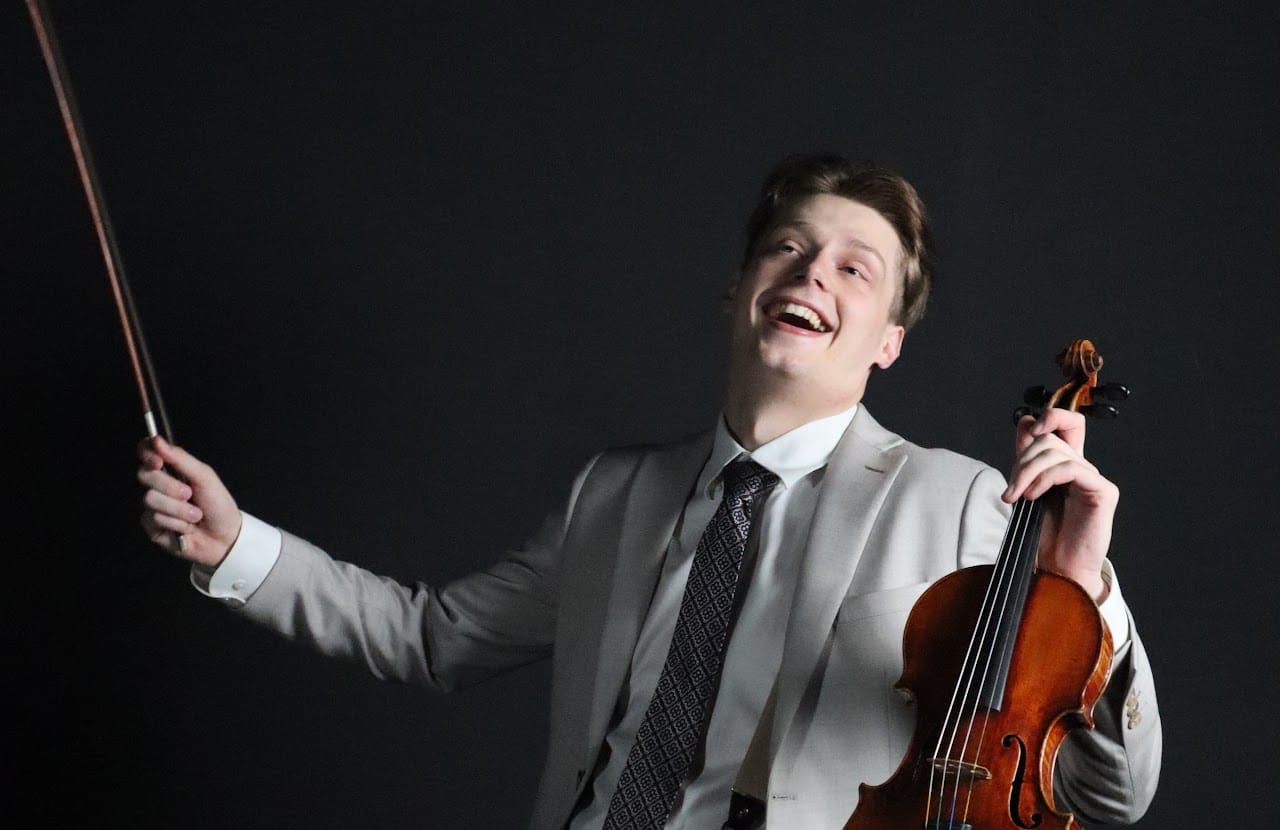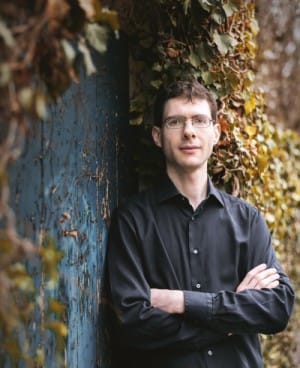Gstaad 2025 (2): Violinist Georgii Moroz and pianist Marco Scilironi
There is no doubting the talent on display here, both from violinist and pianist. Moroz is far from a polished gem, though

Gstaad Menuhin Festival (2): Matinée des Jeunes Étoiles VI Georgii Moroz (violin); Marco Scilironi (piano). Gstaad Chapel, Gstaad, 1030am, 23.08.2025
Bartók Rhapsody for Violin and Piano, Sz 86
Moroz The Poet
Prokofiev Violin Sonata No. 1 in F minor, Op. 80
Ysaÿe Caprice après l'Étude en forme de Valse, Op. 52/6 de Saint-Saëns
Ukrainian violinist Georgii Moroz (born 2001, Kyiv) was joint second prize winner at the Third Alberto Lysy Violin Competition in Gstaad in 2024. There was no first prize awarded, and the second was shared with the German-Spanish-Malaysian violinist Elias David Moncado. Each received 4,000 CHF (Swiss Francs). Moroz was also loaned a Jean-Baptiste Vuillaume violin for four years by Camerata Lysy; another part of his prize was to perform at the 2025 Gstaad Festival.
So here we are. Trained at Singapore (completing his Bachelor degree there in 2023), Moroz moved to the Hans Eisler Academy to further his studies, now with Antje Weithaas. He is a laureate of several competitions (many of these performances are available on YouTube), including finalist at the 2022 Sibelius Competition and semi-finalist at both the Singapore International Violin Competition (2022) and Queen Elisabeth Violin Competition (2024). He was joined by pianist Marco Scilironi, whose recordings of Kurtág and Pärt with Bardolet Vilaró show him to be a chamber musician of the first order.
The recital began with Bartók's First Rhapsody for violin and piano, Sz 86 / BB 94a, of 1928. The first thing to say is that Moroz is loud; three rows in, inside a small chapel, there was some adjustment of expectation to be made, from this listener at least. I am sure the stone and wood of the chapel acted as some sort of amplifier, too. Any yet his pizzicato went nowhere. Bartók's piece is virtuoso, and there is no doubt that Moroz is himself a virtuoso: his stopping is impeccable, his trills to die for, so unutterably even. Certainly, Moroz dug into the Romani-influenced first theme, and Scilironi offered a backbone of strength. The piece was dedicated to Szigeti, who had a natural affinity for the folk music enclosed within (Szigeti and Bartók himself recorded the piece in May 1940 in New York). Moroz and Scilironi definitely had the dance element, but perhaps did to celebrate it as much as they could. Here's the composer, with Szigeti, in that performance I just mentioned:
So to the piece by Moroz himself, The Poet. Although Moroz’s own website does mention he is a composer, it does not really elaborate; and yet, Moroz’ Chamber Symphony No. 1, ‘Classical,’ is available on YouTube (here). It is scored for solo violin (perhaps unsurpisingly) and ten players (strings and piano). Like The Poet, it is instantly approachable, tonally-based but spicy, harmonically. The Poet seems to revel in piano tremolo (well delivered by Scilironi); again, there is much stopping (Moroz composing to his strengths, presumably), although they are milder in demeanour than the Bartók. The spikier parts of the piano contribution were superb, too. But – and there are some buts – this is clearly a work in progress from a composer himself trying to find his voice. The piece is a stylistic patchwok: a sudden ‘French’ moment felt at best indulgent and at worst incongruous. The piece could have ended, clearly, at one point; but did not. Ironically, the end, when it did come, felt too sudden. The piece needs work structurally and stylistically, but there is a clearly talented composer of Romantic and post-Romantic bent trying to get out here. I enjoyed the Chamber Symphony far more, which seems to know what it is.
The Prokofiev Violin Sonatas are, of course, works of genius. The First Sonata, Op. 80, was written between 1938 and 1946. This was an involved performance from both players, Scilironi’s octaves a the opening holding true import; Moroz’s trills superb in response. There was a great grasp, collectively, of Prokofiev’s processes here; if only the famous scalic passage for violin had been more ephemeral (it was technically impeccable, though). The Allegro brusco almost worked, but battling against a real feeling of dryness was palpable, and perhaps Moroz could have enjoyed the big Romanic tune more. Scilironi found real magic at the opening of the Andante, his delivery so even; what was impressive here was the absolutely identical articulation between piano, and then violin. The finale is marked ‘Allegrissimo”; this was the only time Moroz’s stopping was challenged. The stoppings close phrases in a gesture that seems to encompass triumph and dance (a sort of composed shout of “hey”); but they felt perfunctory from Moroz here.

Here's supplementary performance of the Prokofiev by two greats: David Oistrakh and Lev Oborin:
Much better as far as the recital is concerned was the Ysaÿe, written after one of Saint-Saëns' Etudes, Op. 52. The piece is charm itself. Moroz did his very well indeed; Scilironi took inevitably something of a back seat here. It felt as if Moroz was relaxing at last, and Ysaÿe’s take may surprise those who only know the composer’s solo sonatas.
Moroz and Scilironi’s encore was a piece by Viktor Kosenko (1896-1938) called Dreams (you can hear most of his performance at the Singapore Competition in December 2022 below).
It is a fabulous piece, one of two that comprise Kosenko’s Op. 4bis, written in 1919. It would be easy to over-sentimentalise this piece, but Moroz and Scilironi got it just right. I would like to hear Moroz and Scilironi in more Ukrainian music: what about the Lyatoshynsky Violin Sonata, Op. 19 of 1926, a magnificent work of unbridled imagination from that great composer? (try here for a recording of the first movement). Or, indeed, Kosenko’s own rather gentler Violin Sonata in A minor, Op. 18 (1928)?
There is no doubting the talent on display here, both from violinist and pianist. Moroz is far from a polished gem, though. And I definitely wan to encounter pianist Marco Scilironi again.
